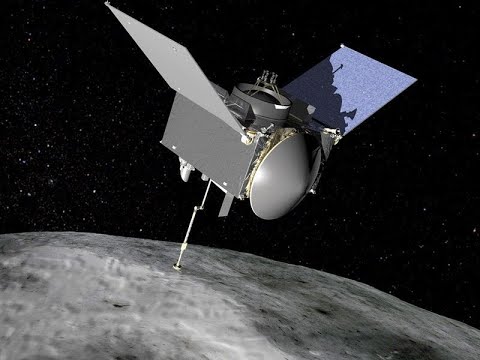Dirt from the Asteroid Bennu
Guests: Doug Sharp and Rich Geer
Description: The discovery of organic molecules on Asteroid Bennu is a remarkable achievement that has far-reaching implications for our understanding of the early solar system and the origins of life. The presence of these molecules suggests that the building blocks of life may be more widespread than previously thought, and that asteroid impacts could have played a crucial role in delivering these materials to Earth.
From a Young Earth creationist perspective, the findings from Bennu can be seen as part of God’s grand design, reflecting His creative power and sovereignty. Regardless of one’s worldview, the study of Bennu’s composition provides valuable insights into the nature of our universe and the processes that shaped it. As research continues, we can look forward to new discoveries that will deepen our understanding of the cosmos and our place within it.
Asteroid Bennu, a near-Earth object, has garnered significant attention since NASA’s OSIRIS-REx mission successfully collected samples from its surface in 2020. The analysis of these samples is crucial for understanding the building blocks of our solar system and, by extension, the origins of life on Earth. From a Young Earth creationist perspective, it’s essential to approach the findings with a biblical worldview. The materials found on Bennu, which include carbon-rich compounds and minerals, can be seen as part of God’s intricate design in creation. Genesis 1:1 states, “In the beginning, God created the heavens and the earth,” affirming that all celestial bodies, including asteroids, are part of His creation. The presence of organic molecules on Bennu is particularly interesting. While some may speculate about the implications for extraterrestrial life, we must remember that life, as defined in Scripture, is a unique creation of God. Genesis 2:7 tells us that God formed man from the dust of the ground and breathed into his nostrils the breath of life. This emphasizes that while organic compounds may exist in space, they do not equate to life as we understand it biblically. Furthermore, the study of Bennu’s composition can provide insights into the early solar system and the conditions that led to the formation of Earth. This aligns with the principles of Young Earth creationism, which posits that the Earth and the universe were created by God approximately 6,000 to 10,000 years ago. The materials found on Bennu can be viewed as remnants of the original creation, reflecting God’s creative power and sovereignty. In summary, while the scientific analysis of Bennu’s dirt contents is fascinating, it is crucial to interpret these findings through the lens of Scripture. God is the ultimate creator, and all discoveries about the universe should lead us to that conclusion.

